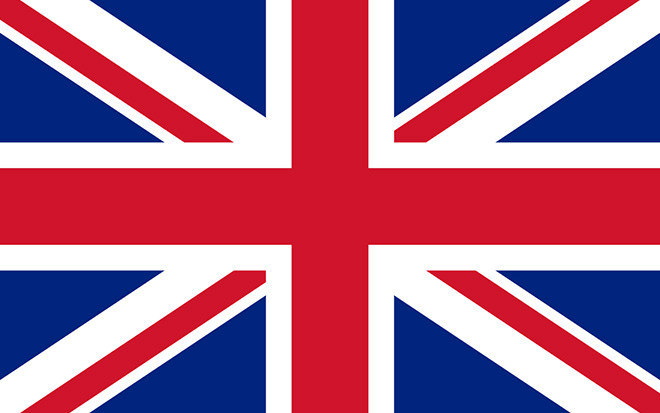Employer Of Record in United Kingdom
We make it easy and painless to expand your business into United Kingdom. Forget about dealing with local regulations, confusing tax laws and international payroll management. We take care of all that so you don't have to.

Accelerate your growth into United Kingdom Compliantly and hassle-free
How we can help you expand in United Kingdom
As your EOR in United Kingdom we’d help you expand by hiring employees and running their payroll without establishing a local branch office or subsidiary.
Your candidate is hired by a PEO in United Kingdom provider in accordance with local labor laws and can be onboarded in days instead of the months it typically takes. Shortly after, your new employee will be working for you, just like any other member of your team.


Expand to United Kingdom with Serviap Global
Through our PEO and EOR services, you can hire qualified talent in your industry without the trouble of opening your own legal entity.
In just a few days, you can easily and safely build a presence in United Kingdom being sure that your staff will be hired in compliance with labor and tax regulations.
Quick Facts
Currency:
Pound Sterling (GBP)
Capital:
London
Payroll Cycle:
Monthly
Language(s):
English
United Kingdom Country Facts
The Economy
Small and Medium Businesses
Starting a Business
Payroll
| Minimum Wage | • For anyone 25 and older: £7.83 per hour. • For anyone under 18: £4.35 • For an apprentice: £3.90 |
| Wages | The median salary in 2021 was 31,487 pounds |
| Overtime | Employers do not have to pay over time, however, your average pay for the hours you work must not fall below the National Minimum Wage. |
Leaves of Absence Employees have the right to paid absences for the following things: | • Vacation leave: Most employees are entitled to 5.6 weeks’ of paid holiday a year. • Sick Leave: In the UK there is Statutory Sick Pay (SSP) which is 86.35 pounds per week if you are too ill to work and is paid for up to 28 weeks. Some companies have a sick pay scheme or occupational scheme that offers employees more. • Maternity Leave: Maternity leave is 52 weeks if eligible. The first 26 weeks is known as ‘Ordinary Maternity Leave’ and the last 26 weeks is ‘Additional Maternity Leave’. Employees must take at least 2 weeks after the birth of a child, or 4 weeks if they are a factory worker. Employers have to pay 39 weeks of SMP to new mothers. • Paternity Leave: Paternity leave is up to 2 consecutive weeks. You must have been working for the employer for 26 weeks by the end of the 15th week before your baby is due. • Family Emergency: In the UK there is such a thing as compassionate leave. This is where you can leave for an emergency for someone who relies on you. There is no law requiring an employer to pay an employee. |
Tax advantages
The UK enjoys low corporate taxation when compared with its European neighbors. Its corporate tax rate is 19%. There are mostly no taxes on dividends received by or paid from a UK company. The country favors research and development by offering an R&D tax relief of up to 230%. The UK also favors entrepreneurship by having a 20% capital gains tax rate while providing many tax relief incentives.
Renewable Energy
Renewable energies make up 43% of its domestic power generation. The UK is peculiar in that regard, since it is one of the few countries where renewable energies have beat fossil fuels. The main renewable energy is wind power, which makes up 20% of its electricity.
Business Culture
The business culture of the UK is based on a few foundational principles, namely punctuality and politeness.
- Stay Private
The business person tends to keep her personal life private and be cautious about making new personal connections. Such connections, then, will take time to develop. - Stay Indirect
It is sometimes difficult to get direct feedback, since people in the UK are not fond of public criticism. It is thus important to set out clear verbal expectations to insure proper business relations. - Be Fair
On a larger scale, the UK is well known for its strong and fair rule of law. It is a trusted global mediator and arbitrator as it delivers fair and impartial hearings around the world. You can count on a stable business environment in the UK.
Food Culture
British people eat simple but hearty foods such as sausages, boiled potatoes, savory pies, fish and chips, and sweet desserts. The country makes great dairy products such as the clotted cream, the double cream, English cream, and the cheddar cheese. The afternoon tea is still a great British tradition, but coffee has grown in popularity. They are also known for their sparkling ciders and may have the best whiskies coming from Scotland.
Population
The UK is a mostly Urban nation with a total population of about 66 million. It is predominantly 87% white, but also has a diversified population with 3% blacks, 2% Indian, and 2% Pakistani. The main language is English, but Welsh, and Gaelic are also spoken.
The majority of the population are Anglicans but Muslims make up about 4% of the population, and 1% are Hindu. They are highly educated with 74% of its population reaching at least a high-school degree. Many go on to advanced university degrees. Those degrees are viewed as basic qualifications to becoming a business professional. The UK business culture, however, does also pride itself in personal business experience, making the mentioning of an educational degree unnecessary. The UK is home to some of the world’s top business and management schools.
Geography
The United Kingdom (UK) is an island country situated in the northwest coast of continental Europe. It includes Great Britain, Wales, Scotland, and Northern Ireland. The UK governs several archipelagos, namely the Hebridean islands, the Shetland, the northern region of Orkney, the Isle of Wight, and the Isles of Scilly.
The UK has an extensive coastline and is made up of flat plains and highlands to the west. The climate differs depending on the geography, with the north being wetter and more humid and the south being warmer and drier; but rain remains a prominent feature of life for the entire country.
- London:
Perhaps the most well known city on this list, London is the capital of England and the 6th best start- up ecosystem in the world. A lot of different businesses can thrive here. There is also many different incubators and accelerators to help you kickstart your business, plus it has great access to the rest of Europe making is a great place to expand here and later the rest of the world. However, there is hard competition for anyone new to the city and business survival rate reaches 39.1%. - Leeds:
Leeds is located in Yorkshire, England and is one of England’s top business hubs. This has the second largest business survival rates in the UK and the second largest active business population. Apart from the obvious place, London, Leeds is one of the leeding UK cities for financial and legal services, but its economy is also diverse with retail, creative and digital industries, and manufacturing. They also have an enterprise zone, giving business financial incentives. - Edinburgh:
The capital of Scotland has plenty of appeal for businesses, it’s the leading financial center and houses digital, science and tech industries. This is also a great tourist attraction, with a highly educated population. - Cardiff:
The Welsh capital is another important location for business, due to its advanced manufacturing, retail, creative media and tourism industry. It also offers businesses financial support, and other benefits to help them grow. Furthemore, there are rail connections to the rest of the UK. - Dublin:
The capital of Ireland is another great place to have a business, as Ireland falls under the top 17 countries in the world for ease of starting a business. The GDP growth rate in 2018 was 5.1% which is one of the best in the EU. Construction, food and drink export, ICT, life sciences, business consulting, sanitization services, athletics, e-commerce, farming, and clothing all do well in Ireland.
General Highlights
| Year | 2022 |
| Country | UK |
| Capital | London |
| Num. States / Province | There are 4 countries that make up the UK: England, Scotland, Wales and Northern Ireland |
| Language | English, but not officially. You may also hear Welsh, Gaelic and Scots. |
| Local Currency | Pound |
| Major Religion | Christianity |
| Date Format | dd/mm/yyyy |
| Thousands Separator Format | 999,999,999.99 |
| Country Dial Code | +44 |
| Time Zone | GMT (Time starts in Greenwhich in England) |
| Population | 67.22m |
Border Countries | The Channel Tunnel beneath the English Channel links the UK with France. The UK shares maritime borders with Belgium, Denmark, France, Germany, the Netherlands, Norway, and the Faroe Islands (Denmark). |
| Continental surface | 94,530 mi² |
| Fiscal Year | January 1 to December 31 |
| VAT % | 20% |
Minimum Wage | For anyone 25 and older: £7.83 per hour. For anyone under 18: £4.35 For an apprentice: £3.90 |
| Taxpayer Identification Number Name in the country | National Insurance Number |
| Current President | Prime Minister Boris Johnson |
What you need to know about employing personal in UK:
Laws and Agencies that regulate labor relationships
| Laws | Brief Description |
| Employment Rights Act 1996 | This updates the older Labour Law, and covers the rights of employees in dismissals, unfair dismissals, paternity leave, maternity leave and redundancy. |
Organization membership | The Council of Europe, European Union, European Space Agency, G4, G8, International Monetary Fund, NATO, OECD, Organization for Security and Co-operation in Europe, UN, World Bank Group and the World Trade Organization. |
| National Minimum Wage Act 1998 | This sets the minimum wage across the UK. |
| Employment Relations Act 1999 | Establishes rights at work for trade union recognition, derecognition and industrial actions. |
| The Maternity and Parental Leave etc. Regulations 1999 | Statutory legislation that governs paternal leave and maternal leave. |
| Part-Time Workers (Prevention of Less Favourable Treatment) Regulations 2000 |
A UK labour law that requires employers give people doing part-time work comparable treatment to those full-time. |
| Transfer of Undertakings (Protection of Employment) Regulations 2006 | This gives protection of existing employees rights and any employment contracts or promises continue when a business goes through a transfer. |
| The Equality Act 2010 & Agency Workers Regulations 2010 |
This prevents discrimination in the work place |
| Labor Code | No one labor code |
| Social Security | The National Insurance Scheme (NIS), which provides benefits for sickness, unemployment, death of a partner, retirement, etc. |
Key Tax and Labor Authorities
There are some differences in how tax is dealt with throughout different areas of the UK, especially Scotland. It also extends to the smaller islands around the British coast.
HM Revenue and Customs (HMRC) | This is responsible for administering and collecting taxes all throughout the UK. It includes: • Income tax • Corporation tax • Capital gains tax • Inheritance tax • Insurance premium tax • Stamp, land, and petroleum revenue taxes • Environmental taxes • Climate change and aggregates levy and landfill tax • Value-Added Tax (VAT) • Customs duty; • Excise duties |
Council Tax | Local offices are responsible for administrating council tax in the UK. This levies fees such as parking fees. |
| National Insurance Contributions | The second largest source of government revenue, the NIC is payable by employees, employers and the self-employed. |
| Health and Social Care Levy 2023 | Boris Johnson the Priminisher of England announced there will be a new tax to help fund the national health service. |
Capital Gains Tax |
This tax applies to the disposal of a capital asset. |
Labor Contracts
Employment Rights Act 1996 | This states that employers must give a written statement to an employee with the terms of their employment, within 2 months of beginning work. Both parties are free to agree on the terms of work. However, there are a numbers of protections and rights in the UK that may over ride the contract, Certain things are implied within contracts of employment including: • fidelity (serving the employer in good faith and not acting against its interests) • obedience • due diligence and care, and • protecting trade secrets and confidential information. |
Types of Contracts | Types of contracts include: • Open: Which are part or full time contracts for no set time period. • Fixed-Term: Which are the same as open but have an end date. • Zero Hours Contracts: Which are used for casual work as they do not guarantee a certain amount of hours each week. • Freelance Contracts: Where workers are self-employed and take care of their own tax and National Payments |
Equalities Act 2010 | This protects employees from discrimination of age, gender, ethnicity, sexual orientation, disability, religion, marital status or being pregnant. |
Work Hours | The maximum number of hours a person can work each week is 48. You can choose to work more, but an employer cannot force anyone to work more than these hours. If under the age of 18 you cannot work more than 40 hours a week or eight hours a day, unless the employee chooses to. Workers also must have sufficient breaks. A six hour day needs at least a 20 minute break and 11 hours rest between each shift, and one day off a week. If under 18 this increases to 30 minutes, 12 hours and 2 days. |
Annual Taxable Income
Income tax depends on how much the income is above your Personal Allowance and how much falls within each tax band. You do not have to pay taxes on the first 12,570 pounds, this increases with a marriage allowance and blind persons allowance, and decreases if you make over 100,000 pounds.
| Tax Band | Taxable Income in Pounds | Tax Rate in % |
| Personal Allowance | Up to 12,570 | 0% |
| Basic Rate | 12570-50,270 | 20% |
| Higher Rate | 50,271-150,000 | 40% |
| Additional Rate | Over 150,000 | 45% |
Corporate Tax Rates
The normal rate of corporation tax in the UK is 19% as of 2021, however, it falls to 10% if the profits can be attributed to the exploitation of patents
Public Holidays
The Labor Code provides for public holidays that are observed in the UK:
| Date | Holiday Name | England/Wales | Scotland | Northern Ireland |
| Jan 1 | New Year’s Day | Y | Y | Y |
| Jan 2 | 2nd Jan | N | Y | N |
| March 17 | St. Patrick’s Day | N | N | Y |
| Friday before Easter | Good Friday | Y | Y | Y |
| Monday After Easter | Easter Monday | Y | N | Y |
| First Monday in May | Early May Bank Holiday | Y | Y | Y |
| Last Monday in May | Spring Bank Holiday | Y | Y | Y |
| July 12 | Battle of the Boyne (Orangemen’s Day) | N | N | Y |
| First Monday in Aug | Summer Bank Holiday | N | Y | N |
| Dec 25 | Christmas Day | Y | Y | Y |
| Dec 26 | Boxing Day | Y | Y | Y |
Termination
Type of Termination | Brief Description |
Justified Dismissal | An employer can only dismiss an employee with valid reasons. such as: • Unacceptable standard of work • Gross misconduct such as assault • Persistent long-term illness that makes it impossible to do your job • Redundancy • If employment causes you to break the law • If it is impossible to employ your position any longer |
Voluntary Leave | An employee can resign from their work at any time but they must serve out a notice period which will be detailed in the contract. This notice period increases the longer the employee has been employed. If the employer seriously breaches the contract you may leave due to constructive dismissal. |
Redundancy | When an employer needs to scale down, redundancy takes place, and they need to be fair. Employers may use “last in, first out” or voluntary redundancy, or an offer of another job within the company. If the employee has been at the job for more than 2 years they receive statutory redundancy pay. Which is half a weeks pay for each full year worked when ages 22 or under, and one weeks pay for each year worked with 22-41, and 1.5 weeks pay for each year worked under 41. This is capped at 16,320 pounds. Notice Period: In the case of redundancy there are notice periods that need to be given to the employee. These are one week for employees working between 1 month – 2 years. One week for each year worked between 2-12 years and 12 weeks for employees who worked more than 12 years. |
Retirement | Retirement is currently 65, but will increase to 67 in 2028. Retirement in the UK is a choice and can be done at any age. |
You might be interested in reading...
Your one-stop global hiring solution. Secure, reliable, compliant

Premium Support
No matter how big or small, we are ready to answer all your questions- anytime, anywhere.

Regional expertise
Our team of in-country experts help you navigate new markets and cultural nuances

Top-tier Benefits Packages
Great talent deserves great benefits. We offer a competitive range of benefits so that you only attract top-tier talent worldwide.

You remain 0% liable
Shift the worry from your shoulders to ours! We stay on top of regulations so you’re always 100% complaint with local laws
Contact us and start your business expansion today













